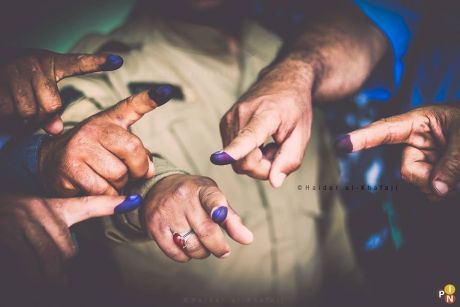News
You are here
Iraqis vote in parliamentary elections

April 30, 2014
Millions of Iraqis bravely challenged the bomb attacks and voted in their first parliamentary elections since the withdrawal of US forces in 2011.
Around 22 million Iraqis were eligible to vote in the parliamentary elections on April 30, 2014. More than 60 per cent of the population voted, despite the unstable situation created by more than a decade of US occupation. Iraqis outside Iraq voted on April 27 and 28 in several countries in the world. Elections were also held in hospitals, prisons and for military and police, ensuring that the majority of the population would have the chance to vote.
People’s commitment to vote and their hope to have a change and a better future is reflected in the competition between the parties, coalitions and candidates. There were more than 9000 candidates contesting for seats in the parliament. This has never happened even in the most developed democracies in the world. Many of the candidates were new in the political arena and a large number of them were young individuals proposing programs with social reforms and plans. The variety of options gave people the chance to vote for change.
Speaking to voters supporting different political parties all referred to the elections as a “democratic wedding” in which everyone is celebrating. Unlike the past elections, this time sectarian tensions between the competing coalitions were not dominant. This is mainly because the elections were not under the US occupation.
Whoever the winner will be, millions of brave Iraqis who defied the threats and bomb attacks to vote will always stand against imperialist plans and anyone who represents imperialism and its agendas in the region.
If you like this article, register for Marxism 2014: Resisting a System in Crisis, a weekend-long political conference June 14-15 in Toronto. Sessions include "Global resistance to imperialism," "Egypt's ongoing revolution," and "Ukraine and inter-imperial rivalry,"
Section:
Topics:









